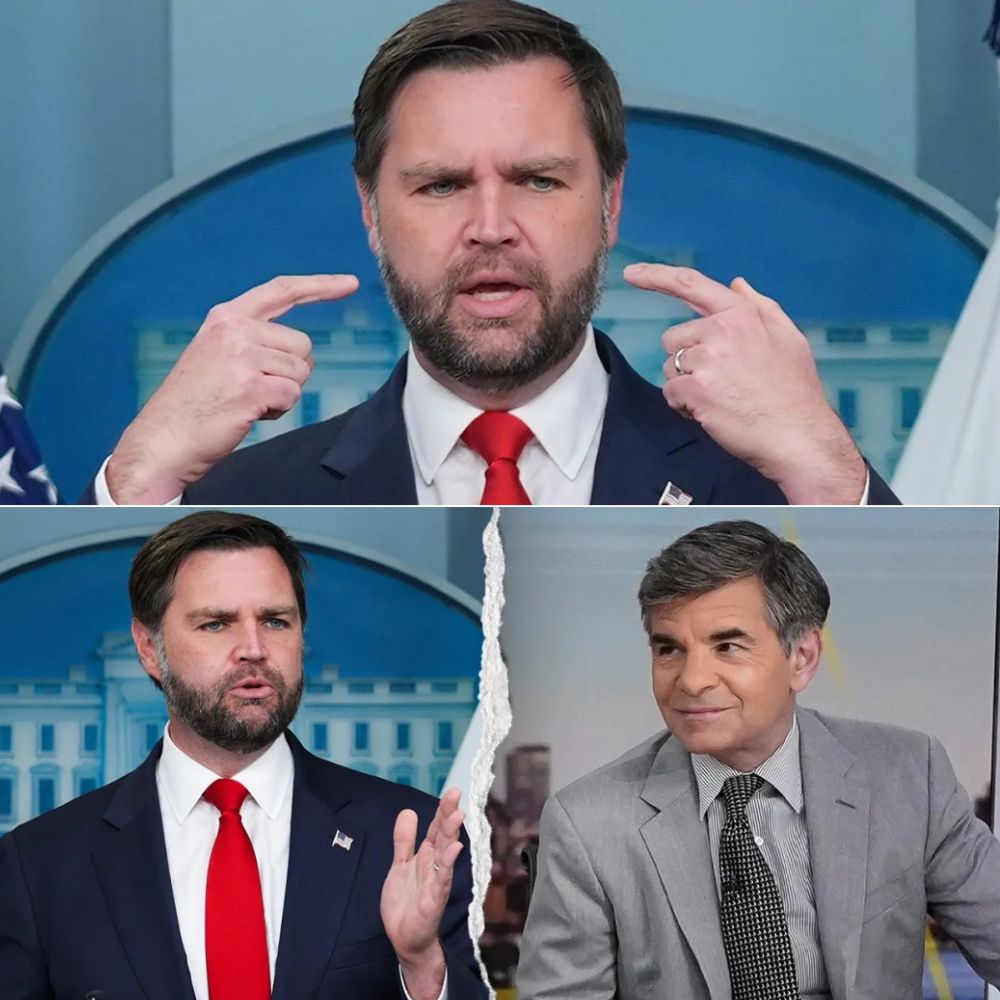JD Vance SHUTS DOWN ABC Host in Explosive Live Clash — Interview CUT OFF Mid-Air!

Vice President JD Vance’s Sunday media tour took a dramatic turn when his interview on ABC’s “This Week” ended abruptly after a heated exchange with host George Stephanopoulos. The incident, which saw Vance’s microphone cut mid-sentence, has quickly become a flashpoint in the ongoing debate over media bias, political accountability, and the limits of live television discourse.
The tension began as Stephanopoulos pressed Vance about bribery allegations involving border czar Tom Homan, referencing a report that Homan may have received a $50,000 payment from undercover agents in a sting operation. Vance mounted a vigorous defense, stating,
“Tom Homan did not take a bribe. Is it illegal to take a payment for doing services? The FBI has not prosecuted him. I’ve never seen any evidence that he’s engaged in criminal wrongdoing.”
Vance further challenged the premise of the question, adding,
“Nobody has accused Tom of committing a crime, even the far-left media like yourself. So I’m actually not sure what the precise question is.”
As the exchange grew more heated, Vance accused Stephanopoulos of going down a “weird left-wing rabbit hole.” The host then abruptly ended the interview, cutting Vance’s microphone and transitioning to a commercial break with the statement,
“You did not answer the question. Thank you for your time this morning.”
The segment’s abrupt ending quickly drew attention on social media, with viewers debating whether the host’s actions were justified or an example of media overreach. Notably, Stephanopoulos himself has previously been at the center of controversy, including a high-profile defamation lawsuit involving Donald Trump, which ABC settled for $15 million.
Earlier that morning, Vance appeared on NBC’s “Meet the Press” with host Kristen Welker. The interview covered a range of topics, including President Donald Trump’s social media posts calling for the prosecution of political opponents such as former FBI Director James Comey and New York Attorney General Letitia James. Welker pressed Vance on whether the Department of Justice was acting on direct orders from the president.
Vance responded,
“The president is allowed to have opinions about the law enforcement of the federal government. He is the chief executive officer of the federal government. Him having opinions doesn’t mean that we prosecute people unless we have the legal justification to do so.”
Welker also challenged Vance on National Guard deployments in American cities and the Trump administration’s approach to DOJ prosecutions. Despite the tough questioning, the interview concluded civilly, in stark contrast to the ABC segment.
The divergent outcomes of Vance’s interviews highlight the increasingly fraught relationship between political figures and the media. The ABC exchange, in particular, underscores how political tension can boil over into on-air confrontations, with both sides accusing the other of bias or evasion.
For supporters of Vance, the ABC incident is seen as evidence of mainstream media hostility toward conservative voices. Critics argue that Vance dodged legitimate questions and resorted to partisan attacks. The episode also reignites debate over the role of journalists in holding public officials accountable—without crossing the line into editorializing or silencing dissent.
JD Vance’s Sunday show appearances serve as a microcosm of America’s current political and media landscape—where interviews can quickly transform into battlegrounds over truth, accountability, and ideology. As social media amplifies every moment, the stakes for both politicians and journalists continue to rise.
Whether the ABC incident will have lasting consequences for Vance or Stephanopoulos remains to be seen. But one thing is clear: in today’s polarized environment, even routine interviews can become national news—and a single cut microphone can speak volumes about the state of American discourse.